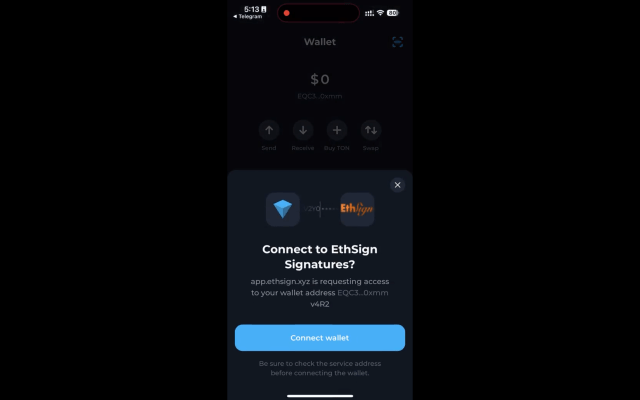[ad_1]

Despite the ongoing regulatory crackdown on the crypto industry and the collapse of some of its poster children, the underlying decentralized technology continues to drive internet incumbents into the web3 space.
Telegram and Line, two of the world’s most popular messengers with hundreds of millions of monthly users, have both been integrating crypto features in recent months. One of the functionalities being introduced to these apps is e-signing, which is powered by a startup called EthSign.
Backed by all three divisions of Sequoia — Sequoia Capital, Sequoia Capital India and Sequoia Capital China (now called HongShan), Singapore-based EthSign aims to provide a web3 equivalent of DocuSign with the promise of an additional layer of transparency and trustworthiness. Its job, then, is to convince the masses that signing contracts on the blockchain is superior to the traditional method.
“For one, it’s much easier to authenticate the identity of each signing party and see a history of their interaction with the signed document,” explained EthSign’s co-founder and CEO Xin Yan, who previously worked at the strategic investment arm of the centralized exchange Huobi.
If a traditional e-signature service provider is shut down, the record of users’ signatures will also be lost, a challenge that’s not associated with distributed ledger technology, Yan told TechCrunch. And once signed, the data is immutable, one of the most promising features of blockchain.
EthSign is deployed on the respective blockchain network that runs on Telegram and Line, TON and Finschia. Once users connect their crypto wallets to the messengers, they can start signing documents through EthSign the way they’d interface with DocuSign.
EthSign has already rolled out on Telegram as a mini app, which can notify users of a list of pending documents to approve. Once a contract is opened, users will be prompted to connect their crypto wallets and scroll to the bottom to sign. At this point, EthSign will ask to access users’ wallet addresses to generate their tamper-proof signatures on the blockchain. (Watch a demo of the feature below.)
EthSign is one of the many web3 projects that are building on TON, Telegram’s blockchain partner that is helping the messenger work towards its vision to become a WeChat-like super app.
Already live on Line as a web app, EthSign has signed a memorandum of understanding with Finschia for further integration in the coming months.
The idea of enabling immutable signatures on messaging apps isn’t new. Back in 2018, a mini app called “Little Protocol” launched on the Chinese messaging giant WeChat. The feature, which enabled users to bind themselves to an agreement with their WeChat IDs with the content of the document recorded on Ethereum, amassed over 100,000 visits overnight. Within 48 hours, however, the app was taken down by WeChat.
To date, EthSign has been connected to some 250,000 unique wallet addresses. It’s still free to use, but its goal is to become an attestation service platform in the future and charge for attestation, verification and other user activities, rather than pursuing the traditional SaaS model that monetizes through subscription fees.
“To attest information on-chain is to bring trust to the on-chain world, where the most promising use case is vampire attack,” explained Yan, referring to the web3 phenomenon in which users are lured into a forked version of an established crypto project that offers enhanced incentives.
[ad_2]
Source link

Comments are closed.